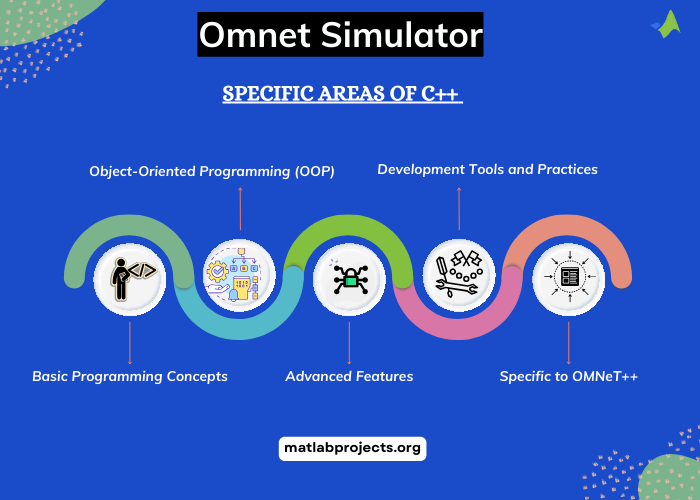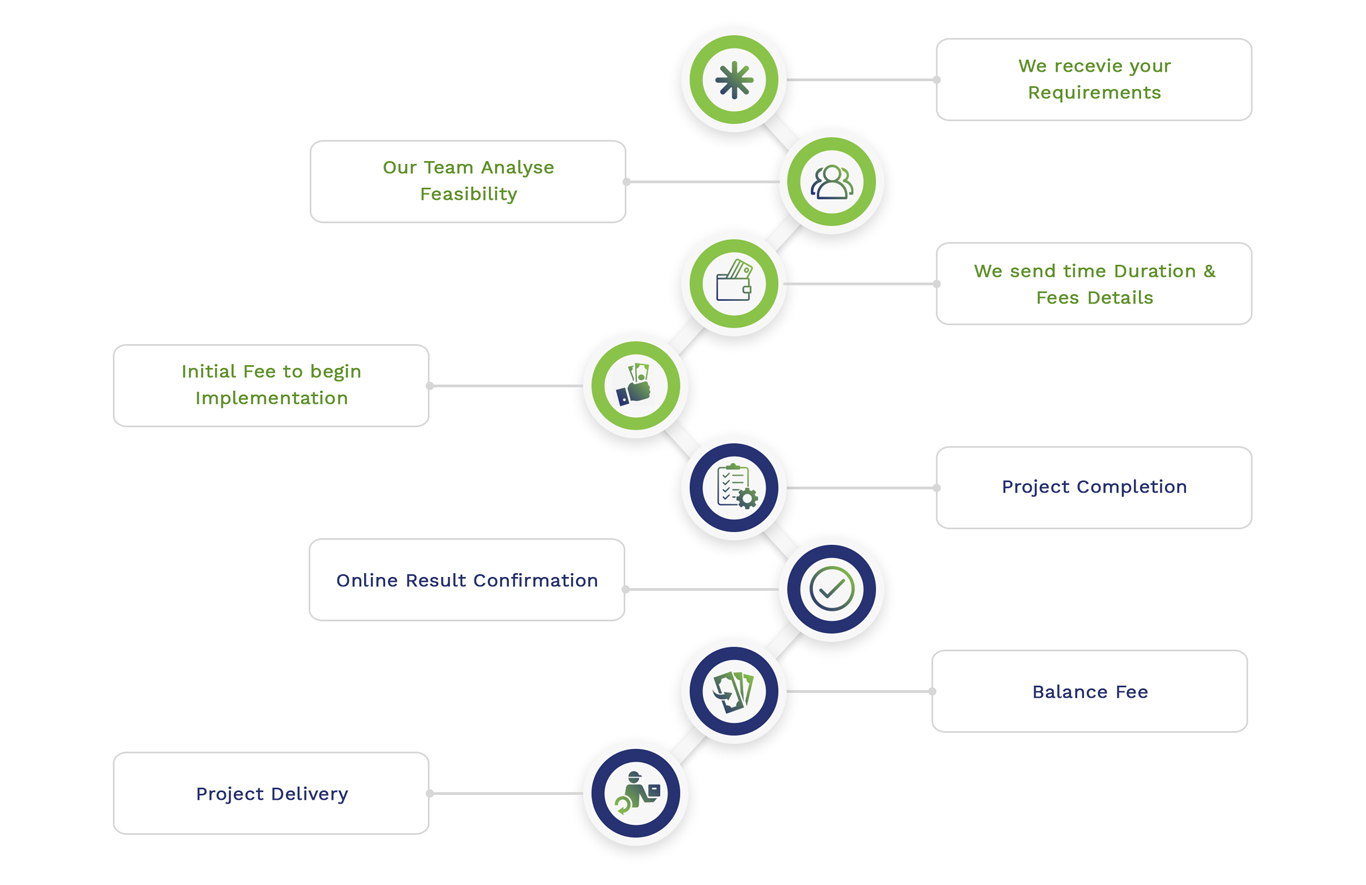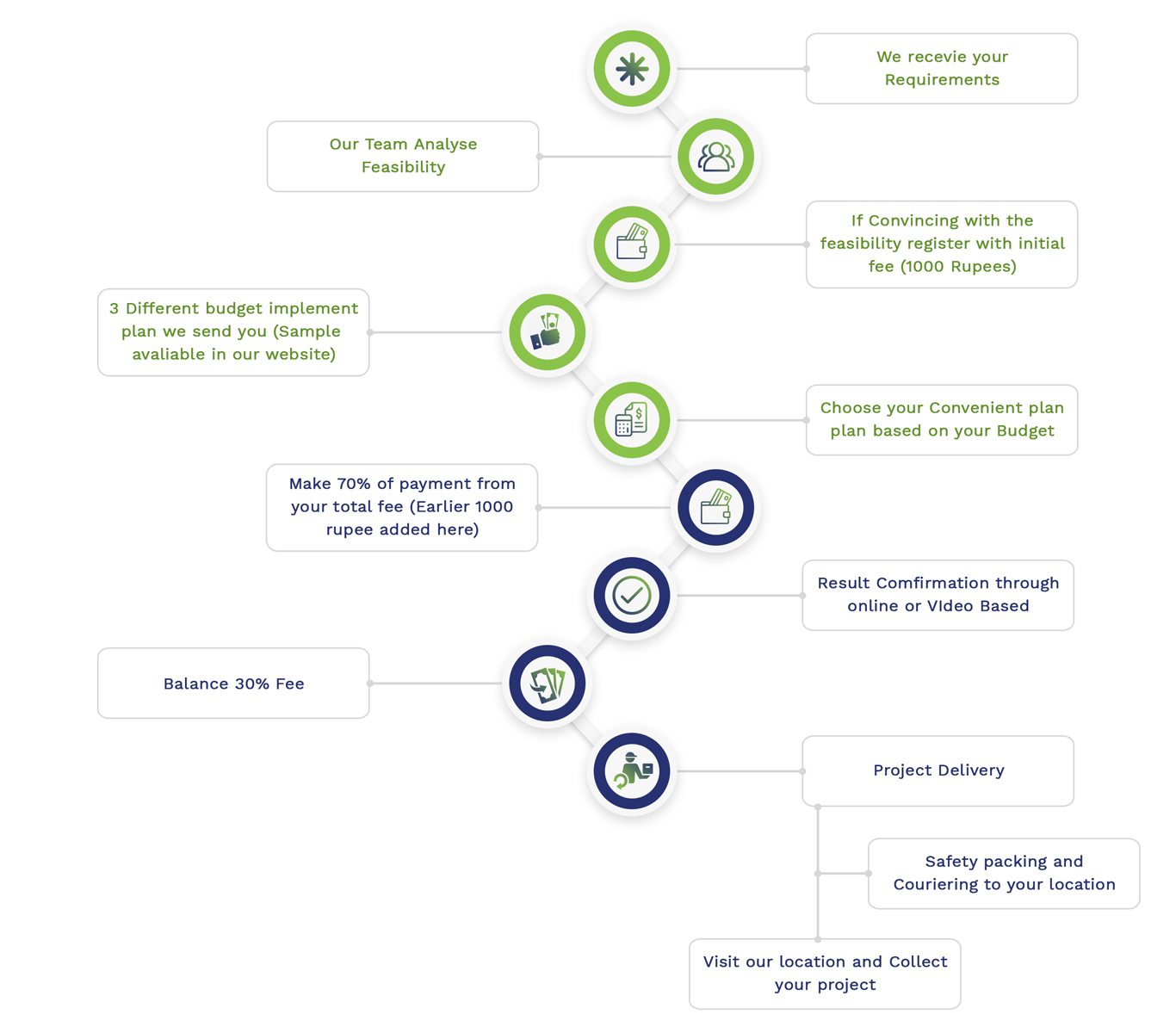OMNeT++ is a component -based C++ simulation library which is particularly designed for constructing network simulators. Discover the ultimate destination for best OMNeT Simulator topics and ideas, complete with unparalleled simulation support. Let our team handle your thesis writing with precision, adhering to all protocols and ensuring timely completion. We provide multiple topics and concepts for conducting a research based on OMNeT++ simulator:
- Simulating Advanced Wireless Sensor Networks (WSNs)
- Explanation: To investigate the synthesization of WSNs (Wireless Sensor Networks) with IoT applications, energy-efficient communication protocols and dynamic routing algorithm, this study primarily concentrates on the simulation of wireless sensor networks.
- Goal: On the basis of data integrity, network durability and energy usage, this study aims to advance WSN performance.
- Cyber-Physical System (CPS) Modeling
- Explanation: Specifically for technologies such as automated vehicles, industrial control systems and smart grids, interpret the communication between physical systems and the synthesized computing and networking architecture by designing and simulating the CPS (Cyber-Physical System).
- Goal: According to diverse operational scenarios and application security, it aspires to review the performance and security perspectives of CPS.
- Performance Analysis of Software-Defined Networking (SDN)
- Explanation: In order to estimate the performance of various SDN (Software-Defined Networking) controllers and OpenFlow protocols, this research highlights data plane separation and network management to simulate SDN systems through implementing OMNet++.
- Goal: SDN is significantly examined in this project on how it improves adaptability, portability and workability of the network.
- Vehicular Ad-hoc Networks (VANETs) and Intelligent Transportation Systems
- Explanation: Considering smart transportation systems involves safety and traffic management demands, simulate VANETs (Vehicular-Ad hoc Networks) for the purpose of carrying out a research on mobility models, communication protocols and its efficient usability.
- Goal: By means of modern vehicular communication technologies, this study seeks to enhance the capability and security of transportation systems.
- Next-Generation Internet Protocols
- Explanation: In several network conditions, the application and performance of future generation internet protocols like novel TCP variants, QUIC or IPv6 are crucially examined.
- Goal: It intends to address the demands of current internet usage models and overcome the constraints of advanced protocols.
- Network Security and Intrusion Detection Systems (IDS)
- Explanation: This project emphasizes the potential of reduction tactics and intrusion detection system and involves simulating assaults and securities by designing network security conditions.
- Goal: For identifying and protecting from cyber threats, the main objective of this research is creating and evaluating security algorithms.
- 5G Network Simulation and Beyond
- Explanation: To investigate applications like network slicing, edge computing and massive MIMO, simulate the application of 5G network. For 6G and across applications, this study includes exploration on possible approaches.
- Goal: Among wireless communication, the potential and problems of 5G technologies and also for predicting future developments is interpreted in an efficient manner through this study.
- Distributed Systems and Cloud Computing
- Explanation: It mainly specifies the perspectives such as adaptability, load balancing and resource utilization. Develop and simulate distributed computing platforms incorporating edge, fog and cloud computing conditions by deploying OMNet++.
- Goal: In distributed computing systems, this project intends to enhance the performance and resource allocation.
- Energy Modeling in Data Centers
- Explanation: For analyzing the energy-saving methods like cooling optimization, server aggregation as well as evaluating the application of renewable energy sources, simulate energy usage in data centers.
- Goal: In the process of preserving the service capacity, it seeks to decrease the energy footprint of data center operations.
- Integration of Renewable Energy Sources in Communication Networks
- Explanation: As this project highlights storage, control tactics and energy harvesting, the synthesization of renewable energy sources with communication network systems are designed effectively.
- Goal: The main aim of this project is improving the energy efficiency and durability of communication networks.
What level of C language do I have to know in order to work on the OMNET and do simulations?
While you get started with OMNeT++ for simulations, basic knowledge of C++ is very essential, it encompasses object-oriented characteristics and other extensions even though it is associated closely with C. It is required to specify OOP (Object-Oriented Programming) perspectives and other characteristics of C++ which is supported by OMNeT++, as C and C++ distributes several expressive and operative resemblance.
You should be aware of the degree of knowledge and important areas of C++ in addition to the application areas of C and its extensions to get started with OMNeT++ and create simulations in an effective manner. The skills which you need to have for working on OMNeT is discussed here:
- Primitive Programming Concepts
- Syntax and Structure: Encompassing the control structures like loops or if statements, operators and data types, you must interpret the fundamental syntax of C and C++.
- Functions: You have to understand the process on how to specify and utilize functions such as return values and parameter passing.
- Basic Input/Output: It is essential to adapt yourself with simple I/O operations. For example, reading from and writing to the console.
- Object-Oriented Programming (OOP)
- Classes and Objects: In OOP concepts, it is crucial to interpret how to specify classes and develop objects. Acquiring sufficient knowledge of OOP standards is crucial, as the OMNeT++ simulations are organized around modules and elements.
- Inheritance and Polymorphism: To extend OMNeT++ components and design custom modules, it is required to understand the function of inheritance and in what way you can deploy polymorphism.
- Encapsulation: Among classes, the relevance of data encapsulation needs to be understood and examine the application of private, protected and public access specifiers.
- Modern Characteristics
- Pointers and References: Incorporating deallocation (new or delete) and dynamic memory utilization, you should be convenient with pointers and references.
- Standard Template Library (STL): For handling data within simulation, it might be beneficial to deploy containers such as maps, lists and vectors. It is significant to accommodate yourself with STL (Standard Template Library).
- Templates: For developing common functions or classes, basic knowledge of templates is necessary.
- Programming Tools and Methods
- Compiling and Linking: The process of compiling and linking C++ programs involving the application of IDE (Integrated Development Environments) or makefiles had to be interpreted, which leverage C++.
- Debugging: To detect and resolve errors in your simulations, aware of debugging tools and methods.
- Version Control: Handle your simulation projects by interpreting the version control system such as Git, which is enormously helpful.
- Specific to OMNeT++
- OMNeT++ API and Frameworks: It is important to accommodate yourself with the simulation environment of OMNeT++ and supported simulated models such as INET for network simulations and its API, even though it is not based on C++ knowledge.

Omnet Simulator Project Topics And Ideas
Check out the list of Omnet Simulator Project Topics and Ideas specifically designed for both Postgraduates and Undergraduates. Our team at matlabprojects.org specializes in providing tailored explanations to meet your requirements. Let our experts craft a compelling Problem statement for you, complete with a captivating title to draw in your readers. Take a look at some of our showcased projects for inspiration.
- An optimised resource aware approach to information collection in ad hoc networks
- AROD: An address autoconfiguration with address reservation and optimistic duplicated address detection for mobile ad hoc networks
- A self-organizing group management middleware for mobile ad-hoc networks
- Formal description and analysis of a distributed location service for mobile ad hoc networks
- A cross-layer multi-hop cooperative network architecture for wireless ad hoc networks
- P-AUV: Position aware routing and medium access for ad hoc AUV networks
- Localized Algorithm for Segregation of Critical/Non-critical Nodes in Mobile Ad Hoc and Sensor Networks
- A scalable key management and clustering scheme for wireless ad hoc and sensor networks
- Sleep-based topology control in the Ad Hoc networks by using fitness aware learning automata
- Multicast overlay spanning trees in ad hoc networks: Capacity bounds, protocol design and performance evaluation
- Self Adaptive Intrusion Detection Technique Using Data Mining Concept in an Ad-hoc Network
- Decentralized key generation scheme for cellular-based heterogeneous wireless ad hoc networks
- A distributed group mobility adaptive clustering algorithm for mobile ad hoc networks
- Embracing interference in ad hoc networks using joint routing and scheduling with multiple packet reception
- Power-controlled medium access for ad hoc networks with directional antennas
- Fully distributed ECC-based key management for mobile ad hoc networks
- Radiation-constrained algorithms for Wireless Energy Transfer in Ad hoc Networks
- Stable Route Link in on-Demand Multicast Routing Protocol for Ad Hoc Networks
- DEAR: A Device and Energy Aware Routing protocol for heterogeneous ad hoc networks
- Two new algorithms for the Min-Power Broadcast problem in static ad hoc networks
Subscribe Our Youtube Channel
You can Watch all Subjects Matlab & Simulink latest Innovative Project Results
Our services
We want to support Uncompromise Matlab service for all your Requirements Our Reseachers and Technical team keep update the technology for all subjects ,We assure We Meet out Your Needs.
Our Services
- Matlab Research Paper Help
- Matlab assignment help
- Matlab Project Help
- Matlab Homework Help
- Simulink assignment help
- Simulink Project Help
- Simulink Homework Help
- Matlab Research Paper Help
- NS3 Research Paper Help
- Omnet++ Research Paper Help
Our Benefits
- Customised Matlab Assignments
- Global Assignment Knowledge
- Best Assignment Writers
- Certified Matlab Trainers
- Experienced Matlab Developers
- Over 400k+ Satisfied Students
- Ontime support
- Best Price Guarantee
- Plagiarism Free Work
- Correct Citations
Expert Matlab services just 1-click

Delivery Materials
Unlimited support we offer you
For better understanding purpose we provide following Materials for all Kind of Research & Assignment & Homework service.
 Programs
Programs Designs
Designs Simulations
Simulations Results
Results Graphs
Graphs Result snapshot
Result snapshot Video Tutorial
Video Tutorial Instructions Profile
Instructions Profile  Sofware Install Guide
Sofware Install Guide Execution Guidance
Execution Guidance  Explanations
Explanations Implement Plan
Implement Plan
Matlab Projects
Matlab projects innovators has laid our steps in all dimension related to math works.Our concern support matlab projects for more than 10 years.Many Research scholars are benefited by our matlab projects service.We are trusted institution who supplies matlab projects for many universities and colleges.
Reasons to choose Matlab Projects .org???
Our Service are widely utilized by Research centers.More than 5000+ Projects & Thesis has been provided by us to Students & Research Scholars. All current mathworks software versions are being updated by us.
Our concern has provided the required solution for all the above mention technical problems required by clients with best Customer Support.
- Novel Idea
- Ontime Delivery
- Best Prices
- Unique Work
Simulation Projects Workflow

Embedded Projects Workflow



 Matlab
Matlab Simulink
Simulink NS3
NS3 OMNET++
OMNET++ COOJA
COOJA CONTIKI OS
CONTIKI OS NS2
NS2






